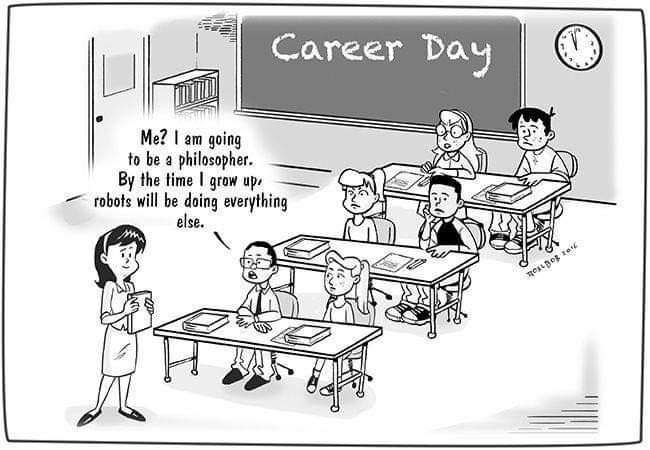It& #39;s not about how many books you read but how you read that determines the benefit you derive from it. If you want to & #39;expand& #39; your knowledge and weld it to build new thinking skills and intuition pumps you& #39;ve got to build both a careful and nuanced relationship with the text.
You need to branch your knowledge outwardly to form those necessary connections in order to build a (solid) mental representation. Think of it like branching out. You master the content of the book you& #39;re reading and question + challenge those ideas from external sources.
Here& #39;s a few practical tips I recommend:
1. Choose your book carefully.
2. Engage with the book. Write down more questions than notes.
3. Check the end of the book for bibliography, recommended reading and notes. Use these.
4. Write an essay related to an idea in the book.
1. Choose your book carefully.
2. Engage with the book. Write down more questions than notes.
3. Check the end of the book for bibliography, recommended reading and notes. Use these.
4. Write an essay related to an idea in the book.
The aim of this is to understand the central ideas of the book in such a way that it sticks in your head. (2) utilizes active recall to make the ideas stick in your memory. (1) helps you reap the most benefit from your time. Not all books are good and nor do you have the time.
The purpose of (3) is to deliberately use any extra reading resources to build, challenge and expand on what you& #39;ve read so that it forms part of a larger mental representation in your mind. Rather than having disjointed ideas from diff books you& #39;ll have a unified one instead.
The purpose of (4) is to bring that knowledge together and test yourself on what you can and can& #39;t do with it. This is the litimus test to see what you& #39;ve understood and what you can do with it. Can you explain these ideas to someone else? If yes, you& #39;ve benefited from the book.
The issue with people having so many PDF& #39;s and unused books piling up on their desk and hard drives is because they don& #39;t know where to start and feel daunted by the process.
Even if they do they realize they can& #39;t internalise content from the amount of books they& #39;ve read.
Even if they do they realize they can& #39;t internalise content from the amount of books they& #39;ve read.
This is largely because of our current culture of productivity being defined as the speed and number of tasks being accomplished as opposed to the quality and utility of content being produced. The goal is to create valuable knowledge in the mind that you can use and disseminate.
Mental representations ensure there& #39;s a complete narrative. An interlocking link of (otherwise) disjointed ideas that now reads like a coherent story. Below is a mind map I created this year that shows what a mental representation in the mind could look like for a certain topic.
This photo, whilst meant to be amusing, illustrates a profound point. Replace the word "philosopher" with "thinking" and it is just as appropriate. We live in a world where information collection and management is increasingly being taken over by technology and AI tools.
In that world the most necessary and useful skill we have is the ability to "think" in the human sense. Our brains, whilst touted to be like machines, are so much more than that. We possess immense capacity for creativity and innovation when it comes to information and ideas.
The aim of successful pedagogy is to acquire information that can be used and both creates novel ideas and enhance existing ones. Building tools for thinking and utilizing our intuition pumps to maximize our creative capacities.
In summary, the world we live in has abundant information, and books can provide us with a lot of it. However, books like all things come in great variety and can be used in various ways. Choosing the right books and techniques will help us bring the most of out of our reading.
The reason many of us become daunted is because of the amount we think we have to read.
The aim isn& #39;t to read much but to read well. To build strong mental representations, tools for thinking, and drives for both utility and creativity.
Happy reading!
End/
The aim isn& #39;t to read much but to read well. To build strong mental representations, tools for thinking, and drives for both utility and creativity.
Happy reading!
End/

 Read on Twitter
Read on Twitter



